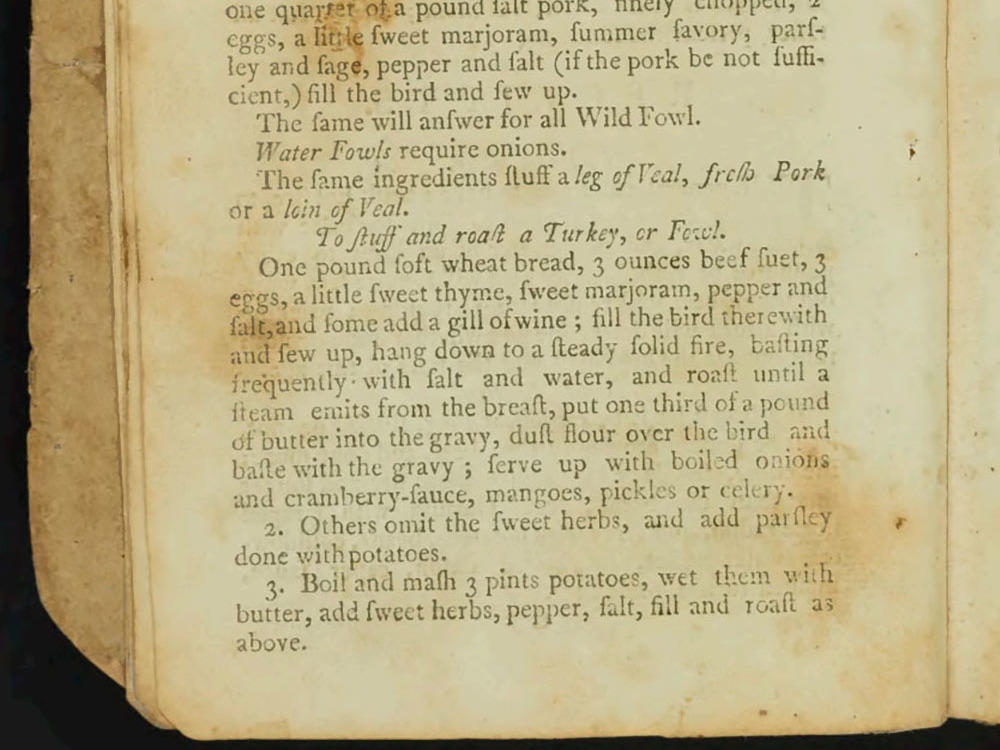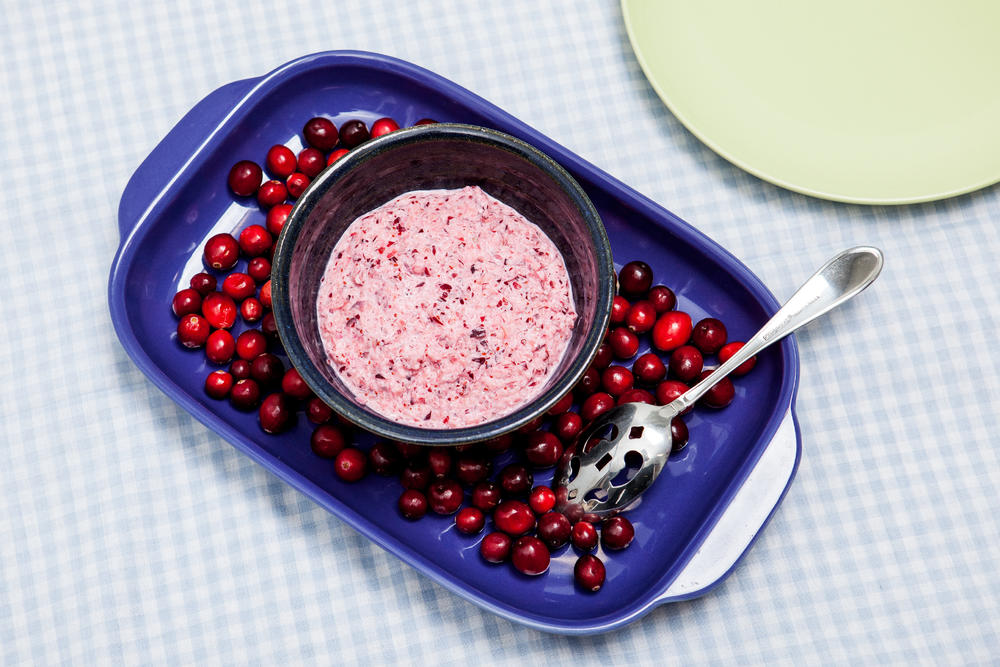Section Branding
Header Content
When turkey met cranberries — a dinner date from the 1700s
Primary Content
Were turkey and cranberry sauce on the table at the first Thanksgiving? There's plenty of supposition, but food historian Pamela Cooley says there's no official record that the pilgrims and Native Americans ate turkey and cranberries at that 1621 feast. No official record in the day's diaries, or newspapers, or Martha Stewart Livings.
It wasn't until 1796, when the first American cookbook was published that turkey and cranberries were linked in print. The book was called — (ready for it?!) — American cookery, or, The art of dressing viands, fish, poultry, and vegetables: and the best modes of making pastes, puffs, pies, tarts, puddings, custards, and preserves: and all kinds of cakes, from the imperial plumb to plain cake, adapted to this country, and all grades of life.
(You can page through the whole thing here.) The 18th century author Amelia Simmons said to serve turkey with cranberry sauce, but didn't give a recipe for it.
NPR remedies that oversight every year, by graciously permitting me to share Mama Stamberg's with our audience. For one thing, it's not a sauce at all — this Thanksgiving recipe I've offered NPR audiences for decades. It's a relish. Mama Stamberg's Cranberry relish.
And so, for 2022, here goes.
Mama Stamberg's Cranberry Relish
2 cups whole raw cranberries, washed
1 small onion
3/4 cup sour cream
1/2 cup sugar
2 tablespoons horseradish from a jar ("red is a bit milder than white")
Grind the raw berries and onion together.
Add everything else and mix.
Put in a plastic container and freeze.
Early Thanksgiving morning, move it from freezer to refrigerator compartment to thaw. (It should still have some little icy slivers left.)
The relish will be thick, creamy, and shocking pink. (OK, Pepto Bismol pink, according to some mis-guided listeners.) It has a tangy taste that cuts through and perks up the turkey and gravy. Its also good on next-day turkey sandwiches, and with roast beef.
Makes 1 and 1/2 pints.
That's it. Simple as mincemeat pie and much tastier.
Back to some history.
Cranberry sauce, presumably without the horseradish, was very popular by 1817. Food historian Pamela Cooley says the magazine Niles Weekly Register reported the amounts of ingredients eaten at Thanksgiving in Connecticut that year: 5,500 turkeys and 1,000 gallons of cranberry sauce. You really have to like those tart little berries to run up numbers like that.
I like them a great deal. But the cranberry dish I love is from the great Indian actress and cook Madhur Jaffrey.
Madhur Jaffrey's Cranberry Chutney
1-inch piece fresh ginger
3 cloves finely chopped garlic
1/2 cup apple cider vinegar
4 tablespoons sugar
1/8 tsp cayenne pepper
1-pound can cranberry sauce with berries
1/2 teaspoon salt (or less)
ground black pepper
Cut ginger into paper-thin slices, stack them together and cut into really thin slivers. Combine ginger, garlic, vinegar, sugar and cayenne in a small pot, and simmer on medium flame about 15 minutes or until there are about four tablespoons of liquid left. Add can of cranberry sauce, salt and pepper. Mix and bring to a simmer. Simmer on a gentle heat for about 10 minutes. Cool, store and refrigerate.
Makes about 1 1/2 cups.
Whatever you choose, whatever you serve, have a very fine Thanksgiving.
(And our thanks to Kim Severson at The New York Times for connecting us with Pamela Cooley.)
Copyright 2022 NPR. To see more, visit https://www.npr.org.


